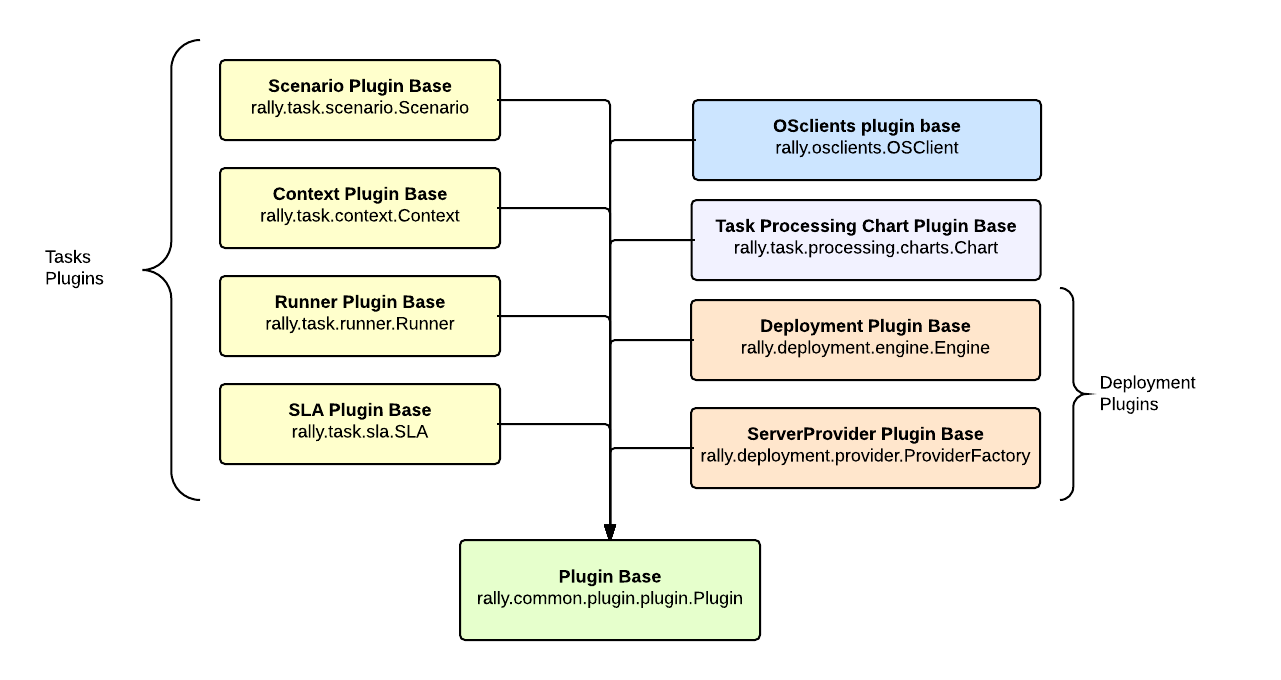* plugin_reference is extended to build data for particular Plugin Base cls * plugin_reference is extended to build data for all Plugin Bases (instead of just building data for hardcoded classes). * cli_reference is extended to build data for particular command * new include_vars extension is introduced for including const data in docs Change-Id: I76d9f85e41c6ab8e622f6d3581478962144525ba
2.6 KiB
Rally Plugins
Rally has a plugin oriented architecture - in other words Rally team
is trying to make all places of code pluggable. Such architecture leads
to the big amount of plugins. plugin-reference contains a full list of all official
Rally plugins with detailed descriptions.
plugin_reference
How plugins work
Rally provides an opportunity to create and use a custom benchmark scenario, runner, SLA, deployment or context as a plugin:
Placement
Plugins can be quickly written and used, with no need to contribute
them to the actual Rally code. Just place a Python module with your
plugin class into the /opt/rally/plugins or
~/.rally/plugins directory (or its subdirectories), and it
will be automatically loaded. Additional paths can be specified with the
--plugin-paths argument, or with the
RALLY_PLUGIN_PATHS environment variable, both of which
accept comma-delimited lists. Both --plugin-paths and
RALLY_PLUGIN_PATHS can list either plugin module files, or
directories containing plugins. For instance, both of these are
valid:
rally --plugin-paths /rally/plugins ...
rally --plugin-paths /rally/plugins/foo.py,/rally/plugins/bar.py ...You can also use a script unpack_plugins_samples.sh from
samples/plugins which will automatically create the
~/.rally/plugins directory.
How to create a plugin
To create your own plugin you need to inherit your plugin class from
plugin.Plugin class or its subclasses. Also you need to decorate your
class with rally.task.scenario.configure
from rally.task import scenario
@scenario.configure(name="my_new_plugin_name")
class MyNewPlugin(plugin.Plugin):
passimplementation/**
